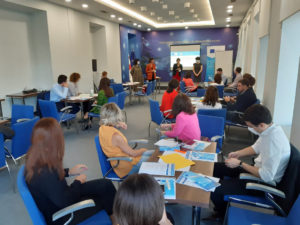
Capacity Building of Relevant Institutions under the Sector Reform Contract for Education Reform in Serbia Strengthening links with Employment and Social Inclusion
The project’s overall objective is to ensure timely, efficient and effective reforms in the education sector as part of the country’s preparations for EU accession negotiations under the Instrument for Pre-Accession. WEglobal is working with the Ministry of Education, Science and Technological Development, the Institute for Development of

Technical Assistance to Support the Implementation of the Rural Development Sector Development Programme (Phase 1 + 2)
After the positive vote of the Turkish Cypriot community in the 2004 referendum to reunite the island, the European Council decided to end the isolation of the Turkish Cypriot Community and facilitate its integration with the EU. Therefore, the purpose of the project was to improve socio-economic conditions

“Setting up a Programme Management Unit to Support the Implementation of Grant Schemes for the Turkish Cypriot Community”, in Northern Part of Cyprus
It can be said that countries need reconciliation, confidence-building, and support regarding civil society. In this way, the overall objective of the programme was to prepare the Turkish Cypriot community for the implementation of the acquis by contributing in particular to social and economic development including restructuring human

Facility for the Implementation of the EU-Georgia Association Agreement- II
The project aims to strengthen the capacity of public institutions in Georgia to meet the country’s commitments under the EU-Georgia Association Agreement (AA), including the Deep and Comprehensive Free Trade Area.

Enhancing the Employability of Youth and Unemployed/Low-Skilled Workers, and Improving Their Transition to Employment In Egypt
It can be claimed that advancing the structure and performance of the TVET (Technical and Vocational Education and Training) system and TVET deliveries is essential to better respond to new socio-economic needs, in particular, youth employability and increased competitiveness in the context of the country’s current and future

Support to Quality Infrastructure Framework within the DCFTA Context in the Republic of Moldova
The Moldovan Government has commitments under the EU Association Agreement (EU AA) roadmap relating to improving the domestic investment climate and enhancing the competitiveness of Moldovan businesses in foreign markets. This roadmap is designed to help close the country’s competitiveness gap, enhance its overall productive potential, move it

